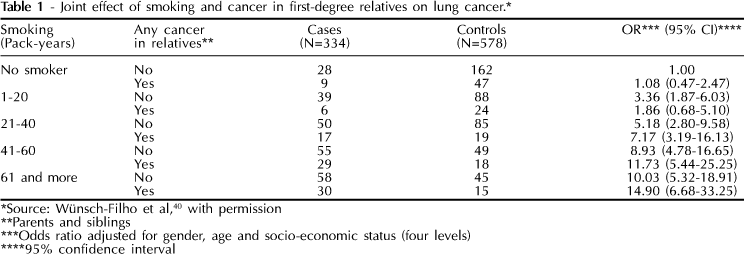Individual cancer susceptibility seems to be related to factors such as changes in oncogenes and tumor suppressor genes expression, and differences in the action of metabolic enzymes and DNA repair regulated by specific genes. Epidemiological studies on genetic polymorphisms of human xenobiotics metabolizing enzymes and cancer have revealed low relative risks. Research considering genetic polymorphisms prevalence jointly with environmental exposures could be relevant for a better understanding of cancer etiology and the mechanisms of carcinogenesis and also for new insights on cancer prognosis. This study reviews the approaches of molecular epidemiology in cancer research, stressing case-control and cohort designs involving genetic polymorphisms, and factors that could introduce bias and confounding in these studies. Similarly to classical epidemiological research, genetic polymorphisms requires considering aspects of precision and accuracy in the study design.
Neoplasms; Polymorphism; Environmental risks; Epidemiology, molecular



